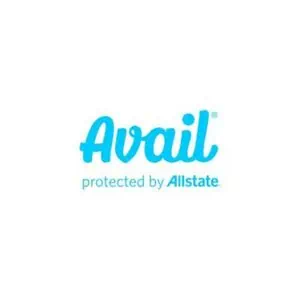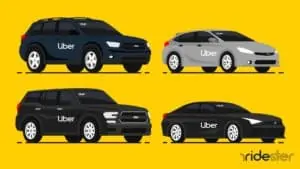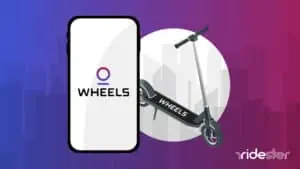Key Takeaways
- Concept: Individuals rent out their own cars to others, offering a unique, affordable alternative to traditional car rentals.
- Top Platforms: Turo, Getaround, Avail, HyreCar, and Outdoorsy are leading peer-to-peer rental services.
- Benefits: Offers cost-effective, flexible rental options and a wide variety of vehicles.
- Growth and Future: Projected to grow significantly, becoming increasingly popular for convenient, short-term rentals.
What is Peer-to-Peer Car Rental?
The concept of a peer-to-peer car rental differs greatly from the traditional system and offers a fantastic alternative to those looking to rent a car in a foreign city or country.
Peer-to-peer car rental simply involves an individual renting out their car to another person for a short period of time.
In the same way that Airbnb allows people to rent out their homes, peer-to-peer car rental platforms do the same for vehicles.
It differs greatly from traditional car rental services, as all vehicles are privately owned and the platform doesn’t own a fleet of cars in the same way that traditional car rental companies do.
The app or platform used simply acts as a third party to connect users with vehicles! This means that peer-to-peer rentals are advantageous for both parties.
Renting out your car is a great way to earn passive income, and those who do rent the cars often find it is a lot cheaper than traditional car rental services.
1. Turo
- Operates in the US, Australia, France, the UK, and select Canadian states.
- Pricing set by car owners; covers insurance but may include additional fees.
- Turo Go allows vehicle access at any time; limitations on driving locations.
2. Getaround
- Available in 30 states; offers hourly rentals.
- Pricing varies; mandatory booking fee on each rental.
- Wide range of vehicles but no delivery service; additional insurance available.
3. Avail
- Unique airport-based operation in Denver and Chicago.
- Transparent pricing; rentals covered by Allstate insurance and 24/7 assistance.
- Competitive pricing but limited location availability.
4. HyreCar
- Specializes in rentals for ridesharing/delivery drivers; operates in all 50 states.
- Flexible rental duration set by vehicle owners; varied insurance options.
- Ideal for earning extra cash with rideshare/delivery but less profitable than owning a car.
5. Outdoorsy
- Offers RVs and campervans nationwide, especially near tourist attractions.
- Variable pricing, including peak season rates; includes insurance and 24/7 support.
- Suitable for short-term, affordable RV/campervan rentals; subject to owner's rules.
How to Choose the Right Platform
With so many peer-to-peer car rental services already on the market all offering a similar service and experience, it can be difficult to choose the right platform.
This is why you need to think about your individual needs first, and then choose a platform based on which ones meet your personal requirements!
One of the most important factors is location as not all platforms are available in every area. Do your research and find out which platforms are available in the area that you are traveling to.
Once you have narrowed the platforms down to those based in your desired area, you can start to look at other factors such as price, available car types, and even whether or not the car is able to be delivered to a specific location.
Think about what you want from your car rental.
Are you looking for a budget-friendly way to get around town? Or, are you embarking on a vacation where the main goal is to treat yourself, so you need a higher-end vehicle?
These preferences should help you choose the right platform based on your needs and ensure you are happy with your rental and the platform you have chosen.
Tips for Renters on Peer-to-Peer Platforms
Here are some of our top tips for renters on peer-to-peer rental platforms to ensure you get the most out of your car rental experience:
1. Shop Around
It is a well-known fact that different platforms and companies offer different pricing, and this extends to peer-to-peer car rental platforms.
Before committing to a rental, make sure you have checked all available platforms in your desired area with the required dates to ensure that you are getting the best price possible.
You might be surprised at how much prices can vary between platforms!
2. Check to See if Insurance is Included
The last thing you want when renting a car is to damage it, and find out later that your rental fee didn’t include insurance!
Make sure you check that insurance is included in your fee, and if not, explore the options available to you to ensure you don’t incur any hefty repair bills in the future
3. Take Steps to Avoid Vehicle Damage
Not only are you renting a car that isn’t yours, but it is likely someone’s personal vehicle – so it is important to take care not to damage it!
Familiarize yourself with local road rules and ensure you are driving safely to mitigate the chances of damaging your rental.
The Future of Peer-to-Peer Car Rentals
While traditional car rentals still hold a majority of the market, peer-to-peer car rental services are slowly on the rise and will soon become a staple for travelers across the world.
Companies are popping up worldwide (particularly in Europe), and their user bases are slowly but steadily growing.
In fact, Research and Markets have predicted the industry will see a 17,6% growth by 2030 and see a valuation of tens of millions in no time at all.
This is because peer-to-peer rentals are so much cheaper and more convenient than traditional services.
In the same way we now turn to apps to book taxis, order food, and even reserve accommodation, we may soon do the same for short-term car rentals!
We expect peer-to-peer car rental platforms to soon take the world by storm in the same way that ridesharing apps did in the 2010s; it’s certainly an industry that we will be watching closely to see how it develops!
Frequently Asked Questions
Here are some of the most frequently asked questions surrounding peer-to-peer car rentals to help answer any further queries you may have:
What is the Difference Between Peer-to-Peer and Car Sharing?
The key difference between peer-to-peer and car-sharing services is that peer-to-peer rentals are always privately owned.
While both offer rental services on demand (and usually via an app), some car-sharing services own fleets of cars that are then rented out via their platform.
Peer-to-peer (as the name suggests) only ever offers cars that are owned by individuals.
Are Peer-to-Peer Car Rentals Good or Bad?
Peer-to-peer car rentals are good, as they offer a convenient way to rent a car for a short period.
They offer a whole host of unique features, such as the ability to rent by the hour, the option to have the vehicle delivered to you, and competitive pricing to help keep the overall cost of your vacation down.
Wrapping Up
Peer-to-peer car rentals are an exciting new option for travelers across the world. While the industry is still in its beginning stages, it will likely take off in the next decade due to how convenient the business model is.
While it might not be the most popular rental option yet, we encourage you to get a head start now and explore peer-to-peer rentals as an option next time you are traveling and need a vehicle!
Chances are, there is already a platform that suits you and your individual needs.










